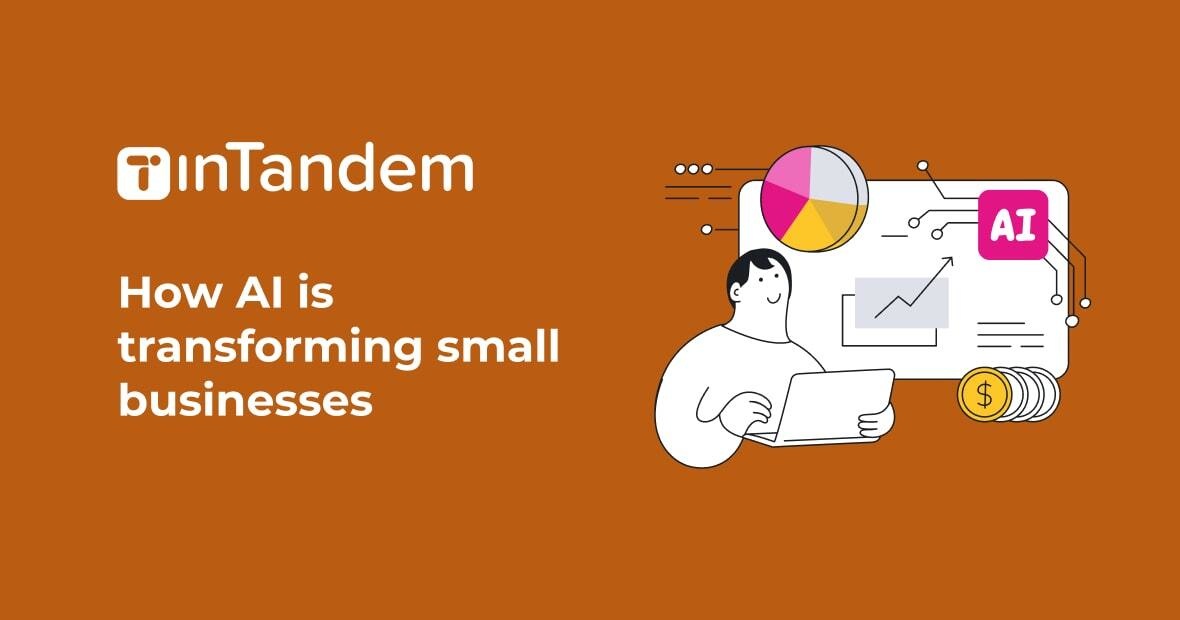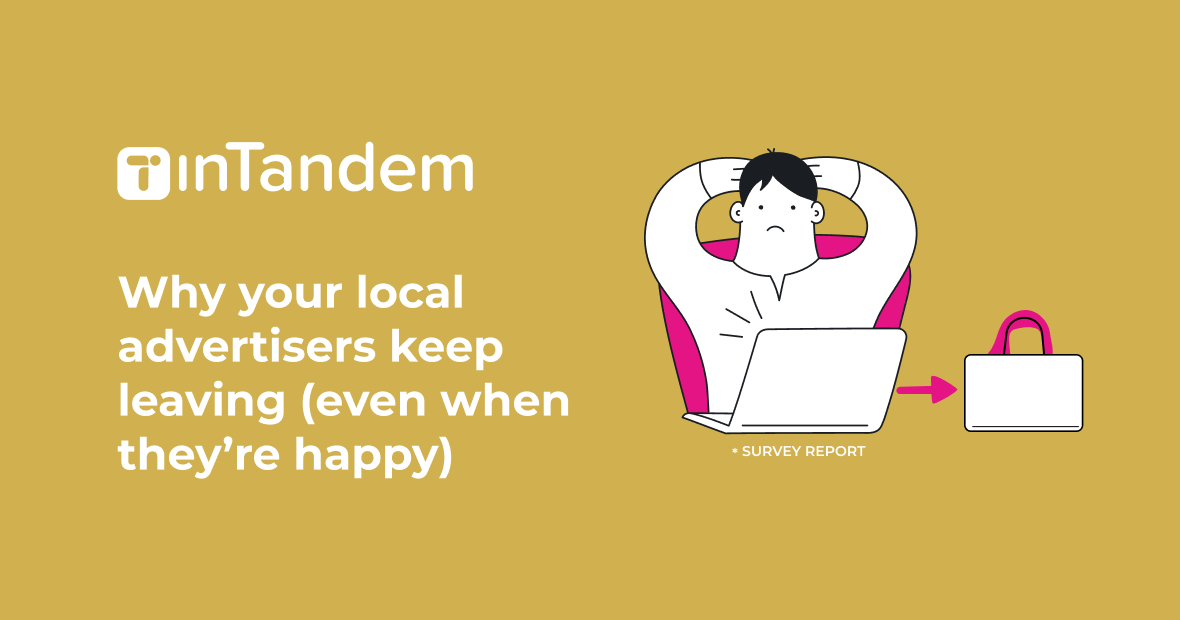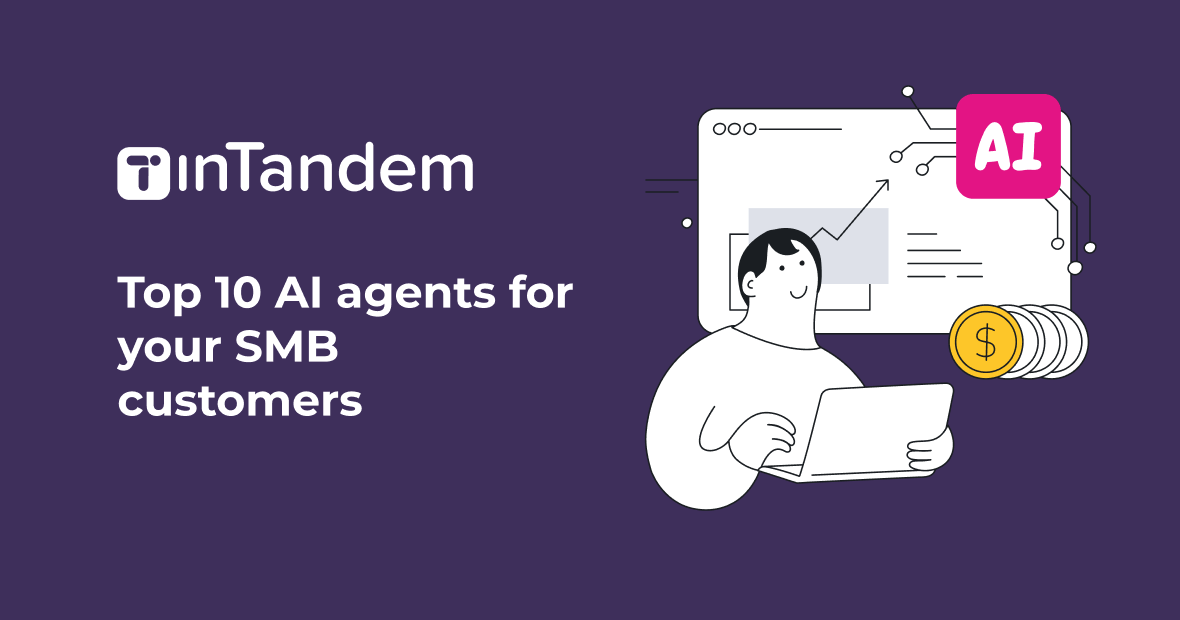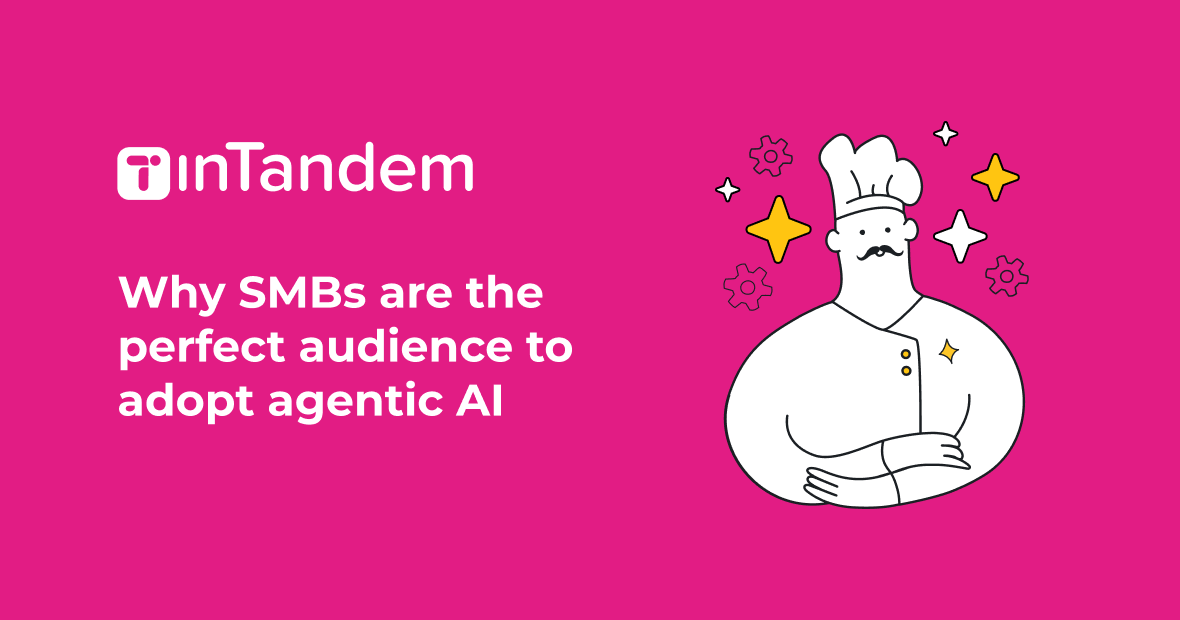How AI is transforming small businesses
We recently had an AI hackathon at vcita, where teams brainstormed ideas that would bring AI solutions to SMBs. From improved client interactions & management, to optimized pricing, to tools that help small businesses present themselves more professionally to the world, there was no shortage of innovative initiatives.
The lesson learned? There are infinite possibilities for AI to help SMBs build, grow, and run their businesses, almost from end-to-end. With small teams and restricted resources, these SMBs need the boost that AI can provide even more than their larger counterparts.
But they are lagging behind in AI adoption. According to our survey, only 30% of SMBs have adopted AI to help them run their business. For many businesses, the chief barrier to adoption is a lack of expertise — 37% of respondents cite this as the main obstacle to implementing AI solutions.
Given the potential that AI holds to drastically transform small businesses, it’s important to help them overcome this hurdle. In this article, we’ll discuss the impact that AI can have on SMB growth, and share tips to make it easier for your SMB clients to adopt your AI solutions.
What will make SMBs care about AI?
SMBs need tools that cater to their unique needs, which vary from business to business. Therefore, in order to make AI relevant to them, it needs to have 3 main elements:
- Business specific use cases: SMBs’ needs vary from business size to vertical. A successful AI tool should be specific to their business and understand their challenges.
- Contextualization: If you want SMBs to care about AI, make sure it’s integrated within the tools they are using. They shouldn’t search for new tools just to adopt AI, instead they should use it to amplify their existing tools.
- Actionable recommendations: SMBs are looking for AI tools that guide them and offer recommendations on how they can maximize their results. An AI tool that provides proactive help, like telling SMBs that their pricing is too low based on the competition, will streamline their use of the tool and make it easier for them to implement it.
How SMBs can use AI
When it comes to using AI in business management, the sky’s the limit. However, there are some use cases that stand out. Here are the most popular and frequently-adopted use cases for AI in SMBs.
AI in marketing
AI in marketing can drive up conversions and improve ROI. Businesses use AI to personalize emails and text messages, which increases engagement. AI can segment recipients into lists for targeted campaigns, and make it possible to send customized messages based on past customer behavior and individual preferences.
In a similar vein, AI powers better social media management. It’s easy to schedule content to post at the optimum time on each platform, and analyze engagement to identify which posts have the biggest impact and which should be changed. AI in marketing also speeds up content creation, enabling businesses to generate relevant content at scale.
AI in sales
Sales teams are benefiting from AI-powered lead scoring and sales forecasting capabilities. AI makes it easy to analyze data about leads, and produces reliable scores that reveal which ones are the most promising and should be prioritized for sales efforts. AI can even help gather data to make lead scores more trustworthy.
When it comes to sales forecasting, AI can gather and crunch enormous datasets to produce accurate insights into sales trends. AI analytics use historical data to predict future customer demands and market fluctuations, so that sales leadership can make better strategic decisions.
AI in customer service
Today’s customers have high expectations for customer service. They want instant replies to their questions, personalized interactions, and speedy resolution for all their issues. AI-powered chatbots can answer queries around the clock, and resolve simple issues to free up employees to deal with more complex cases more quickly.
Additionally, AI can remember customer history, enabling employees to give consistent, personalized attention to each individual. Finally, AI in customer service drives sentiment analysis that analyzes customer feedback from multiple channels. It gauges areas of customer concern, analyzes sentiment about the business, and provides guidance for ways that businesses can improve services.
AI in operations management
AI brings much-needed workflow automation to tedious operational tasks that eat up employee time, especially repetitive tasks like data entry, scheduling, and invoice processing. AI can also streamline complex workflows by coordinating tasks across different departments, ensuring that projects move forward efficiently and increasing productivity.
In inventory management, AI-powered systems can predict demand more accurately by analyzing historical sales data, seasonal trends, and external factors like market conditions. This way, businesses can optimize inventory levels, reducing the risk of overstocking or stockouts. It’s even possible to automate reorders so that supplies are replenished just in time, to improve cash flow.
AI in business management
AI’s ability to collect and crunch massive amounts of data and produce reliable, accurate insights is invaluable for business decision-making. For example, AI can help refine a business’ pricing strategy by comparing it with the competition and ensuring that it’s within the right range.
AI can deliver deep information about customer demands and market fluctuations that enable businesses to avoid emerging risks and take advantage of nascent opportunities. With the help of AI, SMB owners can even write a complete business plan in a fraction of the time, making it easier to pitch their ideas and lay long-term plans.
How to get AI into the hands of your SMBs
Now that we’ve established the powerful advantages that AI in business management can bring to SMBs, the only question is how you can help them to access these advantages.
Educate your SMB clients
Many small business owners still view AI as something that only large corporations can use, and others are nervous about implementing it correctly. Share content like blogs and webinars to show them the value of adopting AI.
Make AI contextual
Your SMB clients don’t just need AI, they need AI that they’ll actually use, without a steep learning curve. When AI tools are embedded into their daily workflows, they won’t have to think twice before using them.
Open up access to AI
Some small business owners might be eager to try AI as part of their business operations, but they aren’t sure which tools to adopt. When you include AI as part of your offering, you’ll help remove the barriers for them.
Lower the cost barriers to SMB AI tools
Small businesses tend to have restricted budgets. They need affordable AI tools that don’t tie up too much of their resources. A monthly subscription, with tiered plans according to the size of their team, is ideal for scalability and affordability.
Simplify the onboarding process
Mastering a new solution can be challenging for many small businesses, and AI can require new methods that they aren’t familiar with. Provide a knowledge base and step-by-step guides to support your SMB clients through the process.
Leverage integrations with existing tools
Small businesses don’t have time to keep switching platforms and adjusting to new interfaces. Offer your clients an AI solution that integrates natively with their tech stack, to remove friction from the adoption process.
How to add AI to your SMB offering
There are three main ways for your organization to build out your SMB AI offering: develop it yourself; outsource AI development; or connect with a proven AI partner.
Developing an in-house SMB AI offering gives you total control. You can decide everything about the project, and maintain ownership over any IP. However, it requires a lot of money and resources, particularly tech expertise, and can take a long time to get to market. It can also divert you away from your core value proposition.
Outsourcing means that you don’t need to find resources or knowhow, and time-to-market is much faster. But it’s too easy to lose control of the project and end up with something that doesn’t meet your specifications. What’s more, outsourcing means giving access to vital data and business systems, opening up serious potential security risks.
Partnering with an experienced AI company like inTandem by vcita gives you the expertise and resources you need, while keeping costs down, maintaining control, and accelerating time-to-market. inTandem brings scalable solutions tailored to the unique needs of SMBs, with the flexibility to adapt them over time. Most importantly, inTandem provides continuous support and innovation, so your AI offering remains aligned with evolving SMB requirements.
Your SMB clients are waiting for your AI solution
Your SMB clients desperately need effective, user-friendly AI solutions that will help them to punch above their weight and maintain a competitive edge against their larger rivals. Partnering with inTandem gives you easy access to a customized AI offering that meets SMB needs now and for the long term. With the help of inTandem, you can bring cost savings, operational efficiency, enhanced customer experiences and richer business decision-making to your SMB customers, thereby increasing stickiness and raising their loyalty to your organization.



























